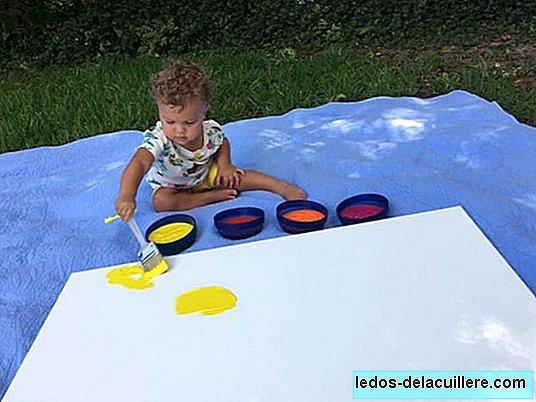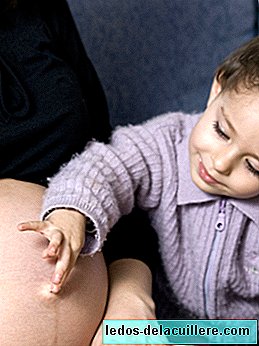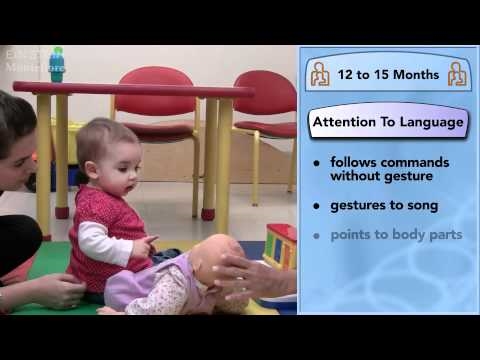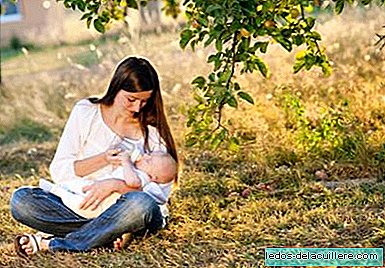
"Mom, what happens when we die?" There are many parents who receive this type of question and it is often difficult to know which is the best answer, especially if you do not know to what extent it should be consistent with your religious beliefs (whether you are a believer or not) or if it is better to 'sweeten' The issue. The latest research in developmental psychology gives us some advice.
Death can be a fascinating topic for many children, something that becomes apparent when they encounter a dead animal or plant. His observations and questions show a healthy curiosity at an age in which they strive to make sense of such a complex world.
However, for many parents death is a taboo subject when talking to childrenAlthough your questions may be a good opportunity to quench your curiosity and feed your desire to learn (in this case about biology and the cycle of life), however, there are situations in which it is better to walk with lead feet.
What do children know?
Most preschoolers do not understand the biological part of death and tend to believe that death is a different state of life, as if it were a long sleep. At this age, children often say that only the elderly and the sick die and even think that dead people feel hungry, need air and can still see, hear or dream. To gain a mature and biological understanding of death, children must first acquire a basic knowledge of death.
Normally it is between the ages of four and eleven when children gradually understand that death is something universal, inevitable and irreversible. because of a failure in the vital organs that supposes the end of the physical and mental processes. That is, at eleven years of age, most children have already understood that all people (including their loved ones and themselves) will have their day and that there is no going back.
However, there are children who can come to understand some of these components earlier and hence their experiences and conversations about them can influence them. For example, those children who have already experienced the loss of a loved one or a pet and those with more experience about the cycle of life thanks to their interactions with animals, tend to have a clearer idea of the concept of death.
The most important thing is not to feel intimidated by the subject: not to ignore a child's questions or try to change the subject.Another factor that can make children understand death earlier is the level of parental education, regardless of children's intelligence. In this way it is suggested that parents can help children understand death by offering opportunities for it and clearly explaining the biological factors during the first years.
Religion and culture also play an important role in shaping a child's beliefs. During their conversations with adults, children often learn not only biological data, but also "supernatural" beliefs about the hereafter and the spiritual world. Developmental psychologists have discovered that as children get older and understand biological factors about death, they usually also develop a "dualistic" point of view which combines biological and supernatural beliefs.
 In Babies and more The "Why" stage: how to answer children's constant questions
In Babies and more The "Why" stage: how to answer children's constant questionsFor example, a ten-year-old child may know that a dead person can no longer move or see why their bodies have stopped working, but at the same time they may believe that the dead are capable of dreaming or missing other people.
Sincerity and delicacy
The latest research on how children understand death gives us several clues about the best way to deal with a complex issue that is often full of emotions.
The most important is not feel intimidated by the subject: Do not ignore a child's questions or try to change the subject. Instead we should see it as an opportunity to satisfy his curiosity and contribute to his education and the way of understanding the cycle of life. Similarly, listening carefully to what the child is asking us and what he says about death will allow us to understand his feelings and to what extent he understands the subject in order to know what it is necessary to explain or if it is necessary to reassure the child. A message that is too simplified can be unformative or condescending, while an overly complex explanation can add more confusion and even anguish.
For example, giving very detailed information or graphic details about how a person has died or what happens to lifeless bodies can cause unnecessary worry and anguish, especially among younger children. For some children, the idea that a dead person can still see us can be a comforting idea, while others may be confused and cause distress.
Perhaps the most important thing is to recognize that sadness is normal and that it is natural to worry about death.Another important aspect is sincerity and avoid ambiguities. For example, telling a child that a dead person is "sleeping" can make him believe that the dead can wake up. Research shows that children who understand normality, fatality and the purpose of death are usually better prepared and in a better position to understand death when it occurs around them. In fact, children who better understand what death is like are usually less afraid of it.
Sincerity also means recognize uncertainty and mystery about death, as well as avoid being dogmatic. It is important to explain that there are things that nobody knows and that it is normal to believe in certain things that can be contradicted. Regardless of the religious beliefs or lack of faith of each one, it is good to recognize that other people have very different beliefs, something that will make the children more respectful of the beliefs of others and will encourage their curiosity when trying to understand the world with all its mysteries and enigmas.
Perhaps the most important thing is to recognize that sadness is normal and that it is natural to worry about death. We all feel sad when a loved one dies but we recover gradually as time passes. One way to make a child worry less is to raise the issue from a realistic point of view. For example, you can tell him that it is very likely that they and their loved ones will remain alive for a long time.
 In Babies and more "Mom, I don't want you to become an old woman": how to help children who are afraid of the old age of their loved ones
In Babies and more "Mom, I don't want you to become an old woman": how to help children who are afraid of the old age of their loved onesIf a child is in the situation of accepting the death of a loved one or is facing death at first hand, it is necessary to have a lot of tact when discussing the subject. However, this does not mean that we should be less sincere or open about it. Children manage their anxiety and fears better if they can rely on sincere explanations About the death of a loved one. For those children who know they are dying, it is important to give them the opportunity to ask questions and express their feelings and desires.
Regardless of the circumstances, children try to replace their lack of knowledge when we hide the truth from them. Many times their own imagination can be much more frightening and can do them much more harm than the truth.
This article has originally been published in The Conversation. You can read the original article here.
Translated by Silvestre Urbón












